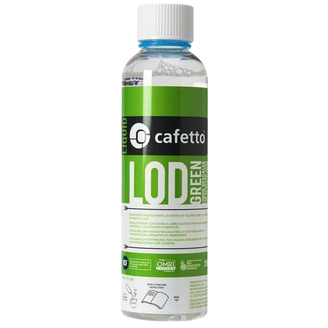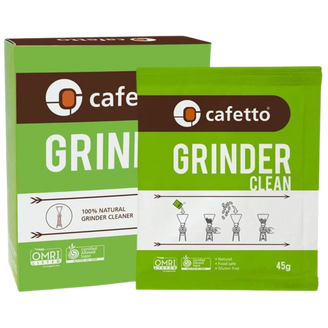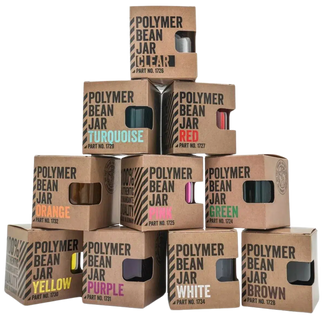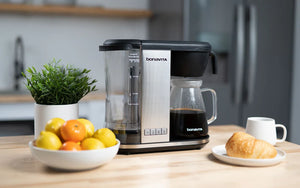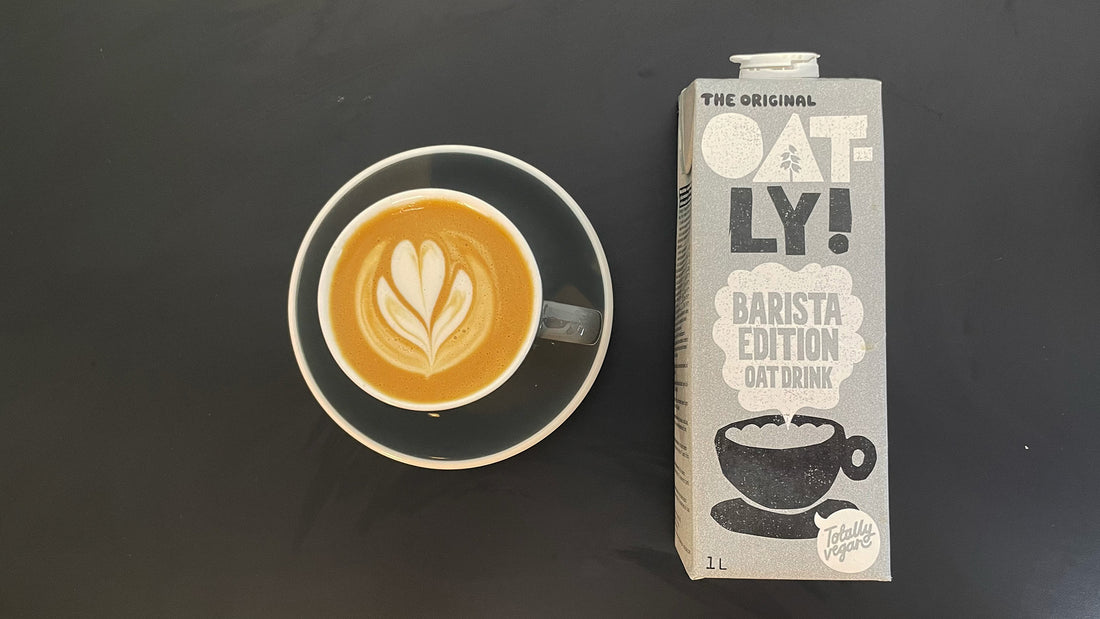
Whether you’re avoiding dairy for dietary reasons, ethical concerns, or simply exploring new tastes, there’s no need to miss out on your favourite latte or flat white. The rise and improvement of plant-based alternative milks in recent years mean you can enjoy a delicious, frothy coffee without dairy. From grocery stores worldwide to your own kitchen, there's a wealth of options to choose from.
However, not all plant-based milks are created equal, especially when it comes to coffee. For a satisfying beverage, it’s best to choose a plant-based milk that meets your taste preferences and performs well when heated or cooled. 'Barista' versions of these milks, specifically designed for coffee, have higher protein and fat content, which helps prevent separation and creates the perfect micro-foam. To match the creamy texture of whole milk (240mL of which contains around 160 calories, 8 grams of fat, and 8 grams of protein), look for alternatives with similar macros.
Here’s our guide to the best plant-based milks, ranked, for your coffee beverages, whether it’s a splash in your Americano or a full-on latte.
1. Oat Milk
Oat milk has quickly become a favourite for non-dairy coffee drinkers. It's nut-free, making it a safe option for those with nut allergies. However, those with gluten intolerances and coeliac disease may give oat milk a miss if it is not made with certified gluten free oats. Oat milk has a slightly sweet, malty flavour that can complement your coffee's taste. However, normal oat milk may separate due to its lower fat content. That's why barista-style oat milk, with around 152 calories, 7.5g of fat, and 2.5g of protein per 250mL serving, is recommended. The barista style version is designed to hold foam better and avoid splitting in coffee. Suitable for either hot or iced coffee beverages with no splitting or curdling.
Brand to look out for: Oatly Oat Drink Barista Organic
Pea milk, made from yellow split peas, is surprisingly neutral in flavour and very creamy, closely mimicking dairy milk’s texture and colour. It’s low in sugar and has a robust nutritional profile, with 100 calories, 7 grams of fat, and 5 grams of protein per 250mL serving—three times the protein found in oat milk. Pea milk is also considered more sustainable than other plant-based options, making it an eco-friendly choice. Suitable for either hot or iced coffee beverages with no splitting or curdling.
Brands to look out for: Sproud Barista, Mighty High Protein Pea Milk Alternative Long Life Unsweetened
3. Soy Milk
Soy milk has been a staple alternative for years. It has a slightly thicker consistency and a rich, creamy taste that works well in coffee. It’s packed with protein and often fortified with calcium and vitamins. Soy milk is an excellent option for creating a smooth, frothy latte. It can have a tendency to split with lighter roast coffees, so it will perform the best with medium roast coffees as a cappuccino. A 250mL serving of soy milk will have around 105 calories, 5 grams of fat and 7 grams of protein, making it the closest to dairy milk in macronutrients of all plant-based milks. Some Soy milks will split or curdle when added to coffee or used in coffee beverages, creating a less than desirable texture. ‘Barista’ soy milk should be used to prevent curdling in either hot or cold beverages.
Brands to look out for: Alpro Barista Soya Milk, Plenish Soya Barista
4. Cashew Milk
Cashew milk can have either a rich, creamy texture or can be watery, depending on the brand chosen. As cashew milk is made with nuts, it is not the best option for someone who may have a nut allergy or intolerance. Cashew milk can be quite versatile, but we found that cashew creamer works best in drip/filter brewed coffees. The Cashew creamer did not curdle in the hot coffee and had a neutral flavour. Additionally, there are several recipes online to make your own cashew creamer at home (https://itdoesnttastelikechicken.com/the-best-cashew-coffee-creamer/), which could be an economical way to substitute dairy in your daily brew. A standard cashew milk can have around 80 calories, 6.25 grams of fat and 2 grams of protein, which is a great low calorie option. In testing, we found that our homemade cashew creamer did separate in coffee, so we will defer to the experts to make one that does not curdle in coffee.
Brand to look out for: Plenish Organic Cashew Milk
5. Almond Milk
Almond Milk has been a long time favourite for those who are health conscious and looking to avoid dairy in their coffee. However, a point of contention of almond milk has been the water and amount of energy needed to produce the plant-based milk. In testing, we found that the foam in an almond milk coffee beverage does separate quite quickly, resulting in a bit of an extreme change in textures. But of the almond milks that were tested, the brands that included oats and were labelled as ‘barista’ had the best texture. Brands that were not labelled as ‘barista’ did split and curdle when used in coffee drinks, making it a less versatile choice for the coffee connoisseur. Our preferred milk in tested has 159 calories, 2.75g of protein and 6 grams of fat per 250mL serving, making it the most dissimilar to dairy of the milks that we tested.
Brand to look out for: Rude Health Almond Barista Drink
Milks That Don’t Work Well in Coffee
While many plant-based milks excel in coffee, some just do not. Rice milk, for example, lacks the necessary protein and fat to hold a micro-foam texture, making it unsuitable for lattes. Coconut milk can have quite an overpowering coconut flavour and does not hold micro-foam texture as well as other alternative milks. Coconut milk is also significantly higher in fat than other plant-based milks, making it higher in calories and not as desirable for anyone watching their calorie intake. Hemp milk is also one that has been emerging as a favourite amongst health conscious coffee drinkers. However, the texture can verge on being oily and too thick when used as the base of a latte, so using it as a splash in your drip coffee may be the best option when trying hemp milk as an alternative.
Tips for Transitioning to using Alternative Milks in your Coffee
Making the switch to plant-based milks can be seamless with a few tips:
Plant-based milks offer a variety of textures, flavours and nutritional benefits; There is bound to be one that will fit into your diet. Whether driven by health, environmental concerns, or curiosity, there's an alternative milk for you. Enjoy exploring these delicious options!











